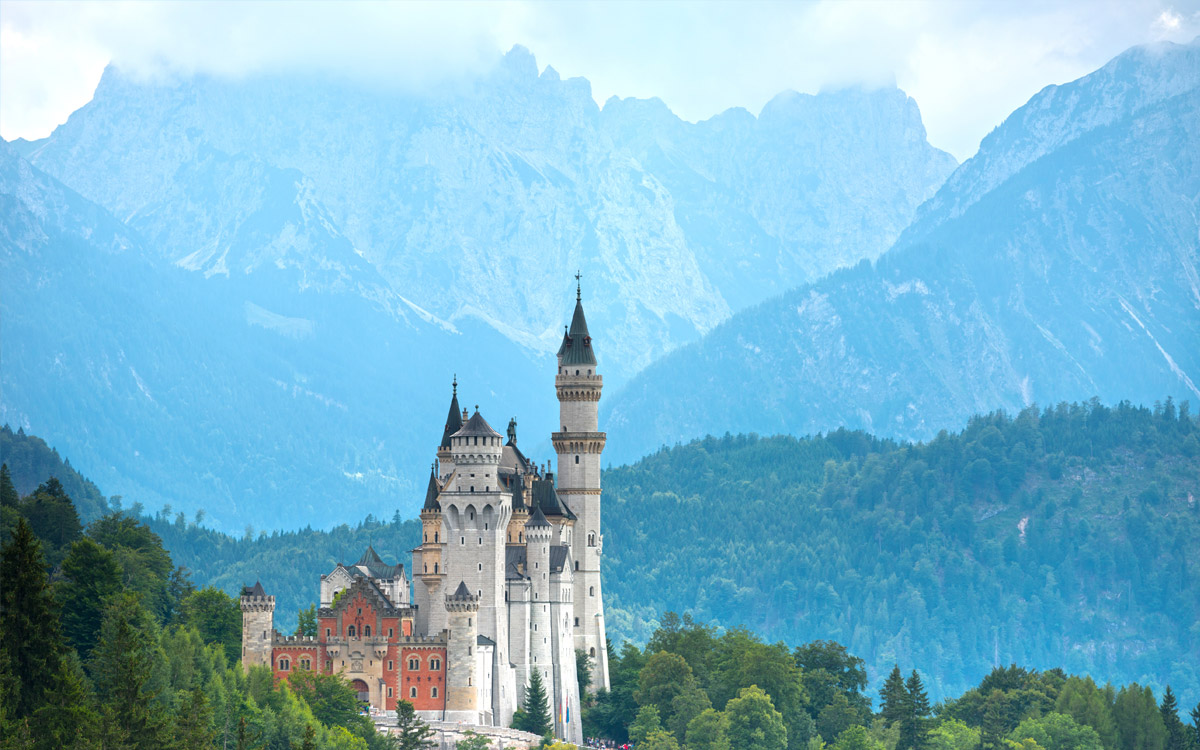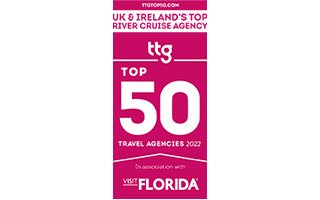The Bavarian city of Munich is one of the country's favourite tourist destinations, offering a unique combination of modern flair and traditional charm, all mixed together with a heavy helping of Gemutlichkeit, the special German term for hearty, happy and healthy togetherness.
München, to give it its German name, is traditionally known for its breweries and beer halls, conjuring up images of jolly red-cheeked men in lederhosen downing steins of beer served by friendly waitresses done up in blonde pigtails. While there's plenty of this sort of fun to be had, there's much more for travellers to sample other than just excellent beer. The city has numerous great museums, art treasures, hi-tech industries and gems of Gothic and baroque architecture, and also serves as the gateway to the Bavarian Alps, drawing winter sports enthusiasts from near and far.
Founded in 1158 on the banks of the River Isar, the city acquired its name, which roughly translates to 'by the monks', because of the Benedectine monastery located in its current Old Town. It was the monks who started the beer brewing tradition for which the city is now world-famous, particularly since a certain annual beer festival began in 1810. Today about six million people visit Oktoberfest every year, consuming more than five and a half million litres of beer during its two-week run. All in all, Munich is a fun-loving and vibrant town of charm and celebration.
Munich Travel Guide
Munich is a city unlike any other in Germany and is the heart of Bavarian Gemutlichkeit, the joy to be found in companionship. This beguiling city is also home to enough cultural and historical attractions to captivate even the most experienced travellers. 'We're here for the beer!' could well be the motto of those who holiday in Munich, a perennial favourite with tourists, which hosts the world-famous Oktoberfest beer festival every year. There are many more reasons to travel to Munich, however, besides sampling its renowned brews and enjoying its friendly beer halls, oompah bands and buxom barmaids. The nightlife in Munich will delight year-round but it isn't all this historic city has going for it.
The Bavarian city epitomises traditional charm, in some respects to excess, and there is a lot of old-fashioned hospitality going around. There is also a sophisticated side to Munich, which has numerous impressive museums and art galleries as well as designer stores and world-class restaurants. The city boasts some breath-taking historic architecture and has no shortage of delights for culture vultures and those who enjoy traditional sightseeing. Those who like to buy their way through new cities will also be very happy with the shopping in Munich.
Best time to visit Munich
The busiest time for travel to Munich is during late September for the beer festival, which attracts about six million people every year, but weather-wise the peak tourist season is summer (June to August), when temperatures are warm and mild, though there are frequent thunderstorms. Winters are cold and snowy. The city's proximity to the Alps makes the weather rather unpredictable.
What to see in Munich
-Visit the impressive Alte Pinakothek Gallery to see the work of the old masters.
-See the Hall of Beauties and stroll the lovely grounds of the Nymphenburg Palace.
-Test your knowledge of science and technology at the Deutsches Museum.
-Admire the historic buildings of Marienplatz.
What to do in Munich
-Enjoy a meal in the revolving restaurant at Munich's Olympic Park.
-Take a sobering tour of the Dachau Memorial Site, the first Nazi 'death camp'.
-Arrange an excursion to the charming alpine village of Berchtesgaden.
-Explore the beautiful scenery and picturesque towns of the Romantic Road.
Beyond Munich
Munich is a great base for exploring the Bavarian Alps, a paradise for hikers, climbers and skiers. Resorts like Garmisch-Partenkirchen are extremely popular with winter sports enthusiasts, and the striking scenery of lake-side villages like Chiemsee attracts many visitors. Munich is also a natural doorway to the Romantic Road, which winds past fairy-tale villages and castles up to Frankfurt. Stuttgart, which has numerous attractions of its own, is also close to Munich.
Getting there
The Munich International Airport is situated 18 miles (29km) northeast of the centre of Munich, and frequent commuter trains service the airport.
Did you know?
-80 percent of Munich's old town centre was destroyed during the war, but much of it has been lovingly restored.
-Munich was founded in 1158 on the lucrative trade route for salt.
-Munich consistently tops opinion polls on the best places to live in Germany.
Getting Around
Munich's city centre is a pedestrian zone so many of its attractions are reached on foot, which is also the most pleasant way to explore its more fascinating and historical suburbs. The efficient and integrated public transport system is excellent for getting around. It consists of buses, trams, the U-bahn (subway) and the S-bahn (suburban train) that operate from about 5am to 1am, with hourly buses and trams servicing main routes throughout the night.
Tickets must be validated on entering stations or when boarding, are transferable between all forms of transport, and lasts for two hours after being stamped as long as one travels in the same direction. Fares are zone based and the system is well-organised and easy to understand.
There are various day passes available as well as the CityTourCard, which covers all transport within the city and includes discounts to the main attractions. Taxis are safe and convenient, but expensive, while ride-sharing apps are also in operation. Hiring a car is easy but it's often better to use public transport to avoid frustration and confusion. Bicycles are also available for hire at very little cost and are a lovely way to get around.
Nightlife
From bustling traditional beer halls to vibrant dance clubs, the nightlife in Munich has it all, and the mix of foreigners and locals gives this city a welcoming cosmopolitan feel. Unlike Frankfurt and Berlin, Munich is more known for its bars and beer halls than its nightclubs.
Still, those in search of some serious parties won't struggle to find them in Munich. Sendlinger Tor, Karlsplatz and Odeonsplatz are where many of the city's favourite clubs are concentrated. Other popular nightlife districts in Munich include Schwabing, boasting numerous traditional Bavarian options and lots of live music; Maxvorstand, near the university and frequented by students; the Glockenbachviertel, adored by the most trendy denizens of the city and home to a number of gay and lesbian venues; and the dingy but cheap area around the Munich East Station.
Travellers should note that the friendly, welcoming attitude of the beer halls is not always matched by the more upmarket and fashionable clubs in Munich, where would-be partiers should dress appropriately and anticipate some selectivity from bouncers.
Shopping
From trendy local and international designers to traditional Bavarian handicrafts, shopaholics enjoy plenty of variety in Munich. Typical Bavarian gifts include trachten (traditional clothing) such as Lederhosen, while the most popular souvenirs are still bierkrug (beer steins) and pewterware.
The two main shopping districts are Neuhauserstraße and Kaufingerstraße in Munich's historic city centre. Department and chain stores abound in these pedestrian-only shopping areas selling everything from clothing and accessories to electrical goods and sports equipment. Head to Maximilianstraße, Theatinerstraße or Leopoldstraße in Schwabing for independent shops and trendy boutiques selling all the latest local designer clothing. Second-hand stores are also found in Schwabing, with real gems hidden among their wares.
The modern Fünf Höfe shopping mall is a great place to find everything under one roof, while the Sunday flea market at Kunstpark Ost provides more alternative buys with second-hand goods, antiques and old bric-a-brac lining the stall fronts. For great food markets, the vibrant Viktualienmarkt behind Marienplatz sells everything from cheese and spices to poultry and game, with the senses coming alive to the fragrances of spices and aromas of delicious produce. The market is open Monday to Friday and features a beer garden where weary shoppers can take a load off, rest their legs and enjoy an ice-cold refreshment.
Most stores are open from Monday to Friday, from 9am to 8pm, and on Saturday until 4pm. Munich is a comparatively expensive city but a rewarding one for shoppers.
Sightseeings
This charming Bavarian city is a popular tourist destination and a quaint combination of old world allure and modern flair. The city boasts numerous attractions, including some wonderful museums such as the BMW Museum, Deutsches Museum, Museum Brandhorst, the City Museum of Munich and the National Bavarian Museum, to name but a few.
Head to Marienplatz to see gaze upon historic buildings and marvel at the uniquely German architecture. Visit Olympia Park and eat lunch in the revolving restaurant in the tower across the street, enjoying gorgeous views over the city. Head to the Englischer Garten in Schwabing to relax and unwind in the picturesque gardens, visiting Munich's second biggest beer garden at Chinesischer Turm in the process. Those thirsty travellers coming in autumn can look forward to the world famous Oktoberfest. For the more adventurous, Munich is also the gateway to the Bavarian Alps and sport enthusiasts from all over the world flock to its slopes for the pristine runs and excellent powder.
Visitors planning on doing lots of sightseeing should consider purchasing the CityTourCard, entitling the bearer to free public transport in Munich and a discount on as many as 70 tourist attractions. Several versions of the card are available.
Restaurants
Visitors should be sure to bring their appetites along when visiting Munich. Eating and drinking are extremely popular activities in this city and travellers will be hard-pressed not to pack on a few pounds with a seemingly endless stream of culinary delights.
Munich is celebrated for its hearty Bavarian fare, with bustling Gaststatten (bistros) the best places to enjoy traditional Bavarian food. Of course, the famous beer halls are great fun and also frequented by locals in droves. Munich has 11 Michelin-starred restaurants, providing sophisticated and creative menus in the city for discerning foodies looking for something a little more high-brow than the grub served in beer halls.
Specialties include Leberkassemmel, a spicy meatloaf; Weisswurst, a veal sausage usually served for breakfast; and Knodels (dumplings). Eating out in Munich is generally quite pricey but that doesn't mean there aren't cheaper alternatives. Visitors also won't struggle to find restaurants in Munich that are open late at night, with some pubs and eateries only closing at 4am.
Promising places to sniff out great local food include the Schwabing district, which overflows with good dining establishments, and the Viktualienmarkt, a square adjoining Marienplatz which hosts a large food market.
Climate
Munich's weather can be unpredictable. In general summers are fairly warm and very wet, characterised by sunny weather interspersed by dramatic thunderstorms. Winters are cold with light snowfalls. In summer (June to August) average temperatures range between 50°F (10°C) and 73°F (23°C), and in winter (December to February) average temperatures range between 25°F (-4°C) and 39°F (4°C). The Alps cause two unique aberrations in Munich weather. Southwesterly winds crossing the Alps can push up temperatures markedly even in winter, while northwesterly winds blowing from the mountains bring unseasonably low temperatures, rain and even snow on odd days. You can easily end up experiencing quite a variety of weather on a stay in Munich. The most popular time to visit is in September and October, for Oktoberfest, but summer is the peak tourism season. Munich is really a year-round holiday destination because so many of the city's attractions can be enjoyed regardless of the weather.










